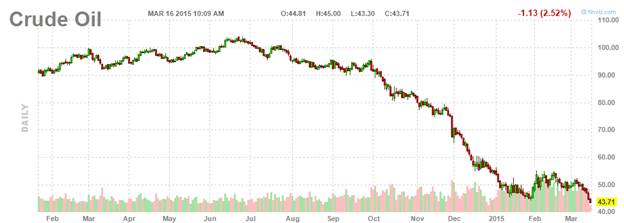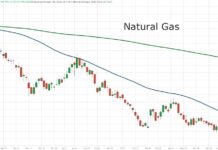Over the past several weeks I have spent a lot of time highlighting the global economic slowdown and how it will continue to drag on the U.S. economy. Country after country around the world is devaluing their currency, lowering their interest rates and/or performing some form of quantitative easing in an attempt to keep their bubble economies inflated. China announced over the weekend that they will do whatever it takes to keep the economy going.
Yes, these actions have resulted in their stock markets going higher but have done little to halt the global economic slowdown. The underlying issue remains: their economies are mired in debt and growth is slowing. It is the same in the Unites States. Yet, the countries in the worst economic shape have the stock markets that are doing the best—does that make any sense to you? Me neither! And it probably won’t end well for those chasing those returns.
 With other countries torching their currencies in an effort to import inflation into their economies, the value of the US Dollar has soared. The Dollar is up 19.1% in the last 6 months and is up 11.1% year-to-date. As I’ve written in past weekly commentaries, a stronger dollar results in our country importing deflation because the stuff we import keeps going down in price. That’s good for the consumer but makes it harder for U.S. companies to export their products abroad because they become more expensive on a relative basis. So those companies have to cut costs anywhere they can to remain competitive which can mean lower wages and/or laying off workers. So, sooner or later the global economic slowdown will likely infect corporate America and make things more difficult domestically.
With other countries torching their currencies in an effort to import inflation into their economies, the value of the US Dollar has soared. The Dollar is up 19.1% in the last 6 months and is up 11.1% year-to-date. As I’ve written in past weekly commentaries, a stronger dollar results in our country importing deflation because the stuff we import keeps going down in price. That’s good for the consumer but makes it harder for U.S. companies to export their products abroad because they become more expensive on a relative basis. So those companies have to cut costs anywhere they can to remain competitive which can mean lower wages and/or laying off workers. So, sooner or later the global economic slowdown will likely infect corporate America and make things more difficult domestically.
The economic numbers in the US are indicating that our economy is already slowing. Note my recent article looking at the last 10 years of economic growth. We are still growing but just as a slower rate. I don’t believe we are entering a recession unless there is a policy mistake made by the Federal Reserve. Instead, it becomes all about which parts of the economy that you should invest in. Personally, I favor defensive sectors like healthcare, housing, and consumer discretionary. Again, as the global economic slowdown becomes more apparent, the US economy will take a hit.
I mentioned the value of the US Dollar soaring—that means that the price of oil is going down. Crude oil started the year around $50 per barrel. It is currently trading around $43, down about 13% year-to-date and down over 50% in the last 6 months.
CRUDE OIL CHART
Even though oil prices are plummeting, oil production in the U.S. continues to grow. In my February market commentary I explained that worldwide demand has been falling faster than supply and that “oil has not bottomed and will most likely drop another 25% or more from current levels.” No, I’m not a genius—it’s common sense that if supply keeps going up while demand goes down that prices will drop. I also relayed research that showed that the most efficient producers are cash flow positive even at $15 dollars a barrel. Most oil producers have heavy debt loads and have to keep pumping to meet their interest payments. So oil can still decline further from here.
All of this brings me to the Federal Reserve. They meet again this week and hold their closely watched press conference on Wednesday at 2 pm EST. Everyone around the world is anxiously waiting to see whether or not the Federal Reserve will do away with one word—the word ‘patient’. In the last meeting they said that they would remain ‘patient’ in raising interest rates. Most Wall Street economists believe that they will remove the word ‘patient’ and by doing so, will signal that they intend to raise rates this year. Remember, though, that the Fed also said that they were going to be data dependent and the data has been clearly showing that the economy is slowing. And considering the broader global economic slowdown, none of this seems wise.
It is possible that the Fed will remove the word patient. It is possible that they may even raise interest rates—but I believe doing so will be a historic policy mistake that will tarnish Yellen’s image. Moreover, raising rates in a slowing economy could result in a recession. No Federal Reserve Chairperson wants that on their resume! So it is also possible that they can remove the word ‘patient’ but not raise interest rates as soon as investors think.
But here’s the broader question: Is this what our markets have come to?
That the power of a single word can move our markets when the strength of our economy can’t?
Lastly, the US stock market trending indicator that I use turned down last week as the S&P 500 dropped again.. And the 10-year US Treasury bonds have been recovering nicely the last couple of weeks. It started the year at 2.17% and reached a closing high of 2.24% on March 6th and has since declined to 2.06%. Remember, that when an interest rate declines it means that the price goes up for those that own them. The Federal Reserve meeting will likely cause some volatility this week in the price of bonds, but I still believe that there is a greater probability of lower bond yields (higher bond prices) over the coming months.
Thanks for reading.
Jeff’s Trending Indicators
US Stock Market Trending Down
US Bond Yields Yield’s Trending Down
Follow Jeff on Twitter: @JeffVoudrie
The author holds positions in mentioned securities at the time of publication. Any opinions expressed herein are solely those of the author, and do not in any way represent the views or opinions of any other person or entity.









